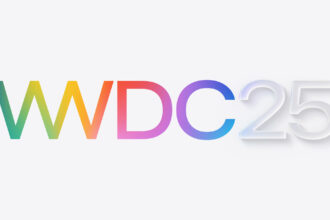The U.S. Department of Justice (DOJ) has proposed that Google should divest its Chrome browser as part of measures to dismantle the company’s dominance in online search. This recommendation, detailed in a filing with the U.S. District Court for the District of Columbia, shows the DOJ’s efforts to tackle what it deems an illegal monopoly in the tech giant’s operations.
The DOJ’s filing follows earlier speculation about a possible push to spin off Chrome, which accounts for approximately 57.45% of the U.S. browser market, according to StatCounter.
The ultimate decision on the appropriate measures for Google lies with District Court Judge Amit Mehta. His ruling, expected in 2025, could reshape the structure of one of the world’s largest technology companies and redefine the digital world as we know it today, especially within the Android ecosystem.
Earlier this year, Judge Mehta determined that Google had abused its dominant position in the search industry, using its power to control various entry points to the internet. This included paying third-party companies to maintain Google’s status as the default search engine.
Key Challenges in Addressing Google’s Monopoly
In its filing, the DOJ highlighted Google’s control over key distribution platforms like Chrome and the Android operating system as significant hurdles to ensuring fair competition in the search market. The agency proposed several measures to curb this dominance:
- Divesting Android and Chrome: The DOJ suggested spinning off both platforms to limit Google’s influence. While acknowledging potential resistance from Google and its partners, the agency emphasized the necessity of such a move if restrictions on Android’s use to favor Google Search were insufficient.
- Restricting Contracts: The DOJ argued that Google should be barred from exclusive deals with third parties, such as its arrangement with Apple to make Google the default search engine on Apple devices.
- Licensing Data: Google would be required to provide competitors access to search and ad click data to foster fair competition.
- Browser Market Restrictions: Post-Chrome divestment, Google would face a five-year ban on reentering the browser market.
- AI and Ads Technology Limits: The DOJ proposed prohibiting Google from acquiring or developing rival search ad technologies and query-based AI products after divesting Chrome.
The filing also outlined provisions to allow publishers to prevent Google from using their data to train artificial intelligence models.
If implemented, these remedies could significantly weaken Google’s position against AI competitors like OpenAI, Microsoft, and Anthropic.
Google in response, criticized the DOJ’s recommendations, describing them as extreme and counterproductive. Kent Walker, Google’s president of global affairs and chief legal officer, labeled the proposals as part of a “radical interventionist agenda” that could harm users and undermine the U.S.’s global tech leadership.
“DOJ’s sweeping proposals go far beyond the court’s findings,” Walker stated in a blog post. He argued that breaking up Google’s products, including Search, Chrome, and Android, would jeopardize their quality, security, and privacy. Walker also warned that services like Mozilla Firefox, which rely on Google Search revenue, could also suffer.
Google contends that the proposed measures would impair consumer access to its search engine, stifle innovation, and hinder its ability to compete in the burgeoning AI market.
This unprecedented government overreach would harm consumers, developers, and small businesses while threatening America’s technological leadership — Kent Walker.
Google is expected to submit its formal response to the DOJ’s proposals next month, setting the stage for what could be a landmark antitrust battle.














